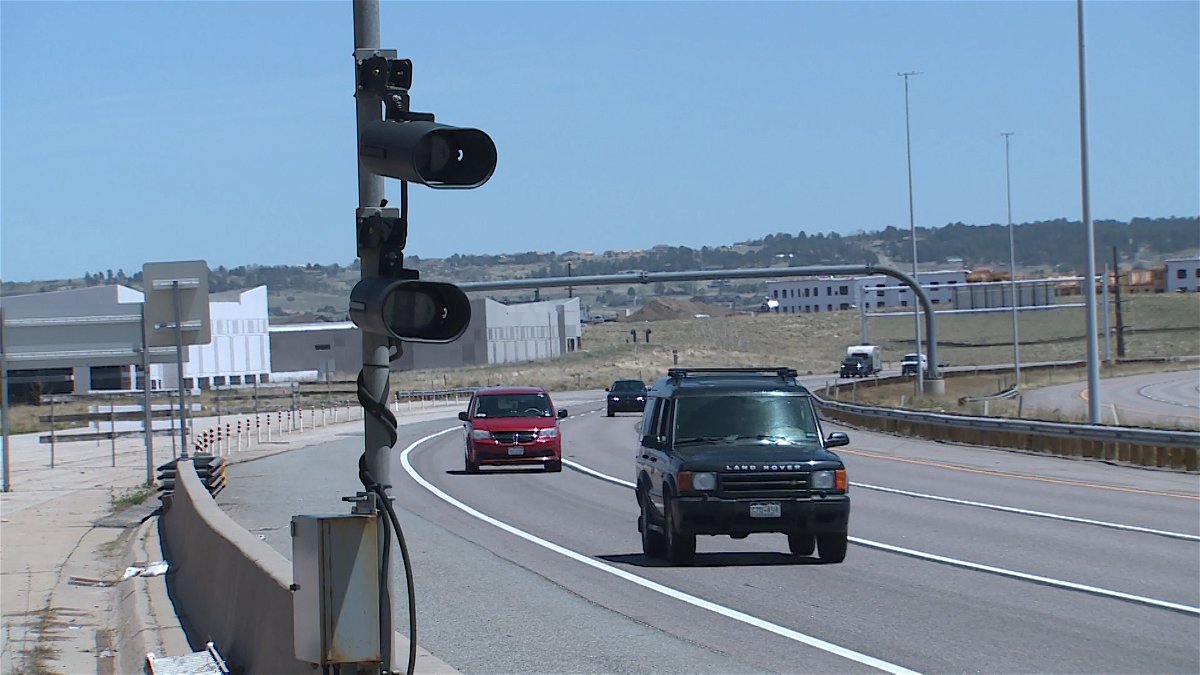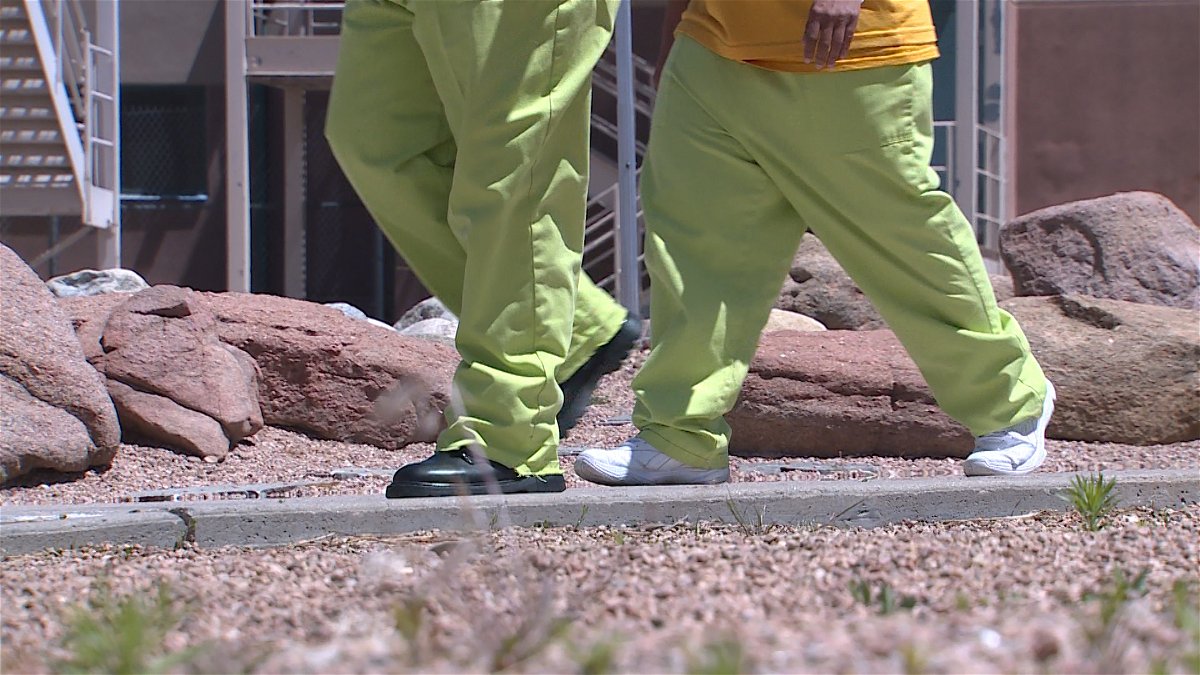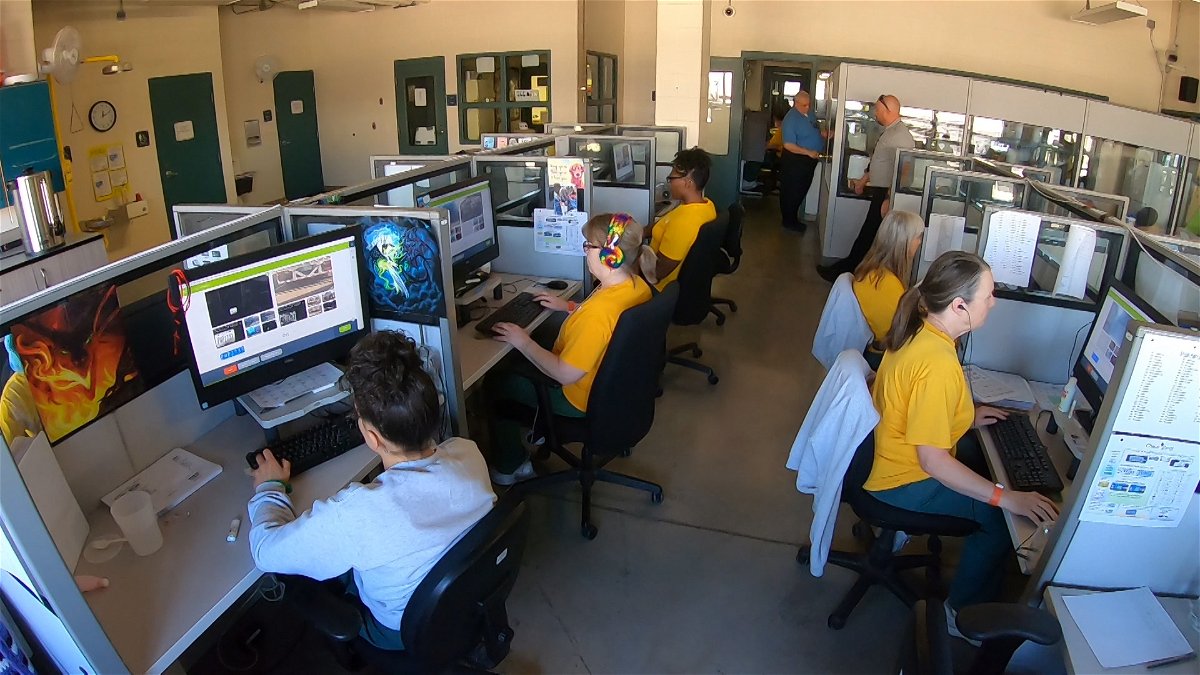New laws aim to reduce repeat incarceration, prepare inmates to succeed once released
DENVER, Colo. (KRDO) -- A new Colorado law aims to prevent a person let out of prison from ending up incarcerated again, or "recidivism."
Recidivism is defined as "a tendency to relapse into a previous condition or mode of behavior, especially relapse into criminal behavior."
Over the past decade, Colorado's rate of recidivism has consistently ranked among the worst in the nation, hovering around 50%, meaning half of all inmates released returned within three years.
As of 2021, the rate has dropped to around 40%, and a bill passed at the state capitol in 2022 aims to reduce it further by offering additional programs that provide inmates with job skills and put money in their pockets.
One of those programs is currently at the Denver Women's Correctional Center and allows a few dozen women paid positions to process photos of license plates captured along the E-470 toll road on the east side of Denver.

Through a partnership with the Department of Corrections, the E-470 Public Highway Authority uses inmates as part of its labor force.
The women don't have access to the names and addresses of vehicle owners. They simply verify the letters and numbers captured by the cameras posted along the toll road.

They perform the work inside the prison, which is surrounded by the same rows and fencing and razor wire as any other DOC facility, but this particular section doesn’t look or feel like most outsiders would expect.
There are cubicles, daily meetings, and coffee breaks.
Inmate Leandra Bumpas calls it a “time-out” from feeling like a prisoner.
“This program gave me a way to feel normal again,” she said.
“It’s a real job,” adds Shanella Clark, another inmate who is part of the program.
Clark is using the money she earns there to pay for classes through CSU-Pueblo, as well as support her kids back home.
“This job does help a person say ‘it's time to get serious about life.' ‘It's time to ground myself and make something different,’” Clark explained.
Department of Corrections Executive Director Dean Williams is also out to create something different.
“Around the country, I don't think we've gotten prison quite right,” he admitted to KRDO.

Williams believes recidivism rates are high primarily because men and women are so often let out of prison unprepared.
“We've released people without jobs, without jobs, without money, without a home, without a purpose or a new social connection, and it's very easy to fail when you don't have one or two of those, let alone all of those in your life,” he said.
And when parolees return, so does the costly burden of caring for them.
As of April 2022, there were just over 15,000 inmates in state prisons.
The average cost of housing each of them per year is $55,716, according to the Department of Corrections.
Programs that provide inmates jobs are nothing new, but the "Correctional Industries Act" passed in 1976 required that all programs be profitable for the state, which greatly limited the options for inmates.
46 years later years, Senate Bill 50 removed the language that required programs to be profitable, allowing the DOC to add programs focused on benefiting those who are incarcerated and not just the state.

“So it's really a significant philosophical shift that helps pave the way for future efforts on our part,” explains Williams.
Along with adding more programs, the Department of Corrections is now allowing inmates to earn far more than they have earned in the past.
For example, the women who are a part of the E-470 program would previously earn a few dollars a day.
Now, it's $12-20 an hour, depending on how fast they can process the camera images.
“Senate Bill 50 said no no no, the goal should be wherever possible, to have increased wages, so when people get out of prison, they actually have money,” said Williams.
Leandra Bumpas says even a minimum wage salary can help inmates afford a place to stay and transportation when they are released.
“They have money, they have savings, they have things that they need to be successful,” she says.
The possibility of a better future after prison has also changed their overall outlook on life.
“Just because I made a bad decision in the past does not mean it has to affect my future,” said Darlene Spears.
“Just because you're in prison doesn't have to define who you are or who you become,” adds Bumpas.

Dean Williams says while people may not have much sympathy for convicted criminals, it’s important to understand that the majority of those people will eventually rejoin the community.
“Who do you want to be your neighbor, right? Do you want someone to come out and be your neighbor who has no job, has no future, has no purpose, has no successful past in their recent past even in prison doing well?” he questions.
“We look at all these programs with this one goal in mind, that we have to reduce the number of people who get out and come back,” Williams adds.
He also pointed out that this was not a partisan issue in the legislature.
The vote in the Colorado Senate was 33 to 0 in favor of the bill.
The vote in the Colorado House of Representatives was 54 to 10.




